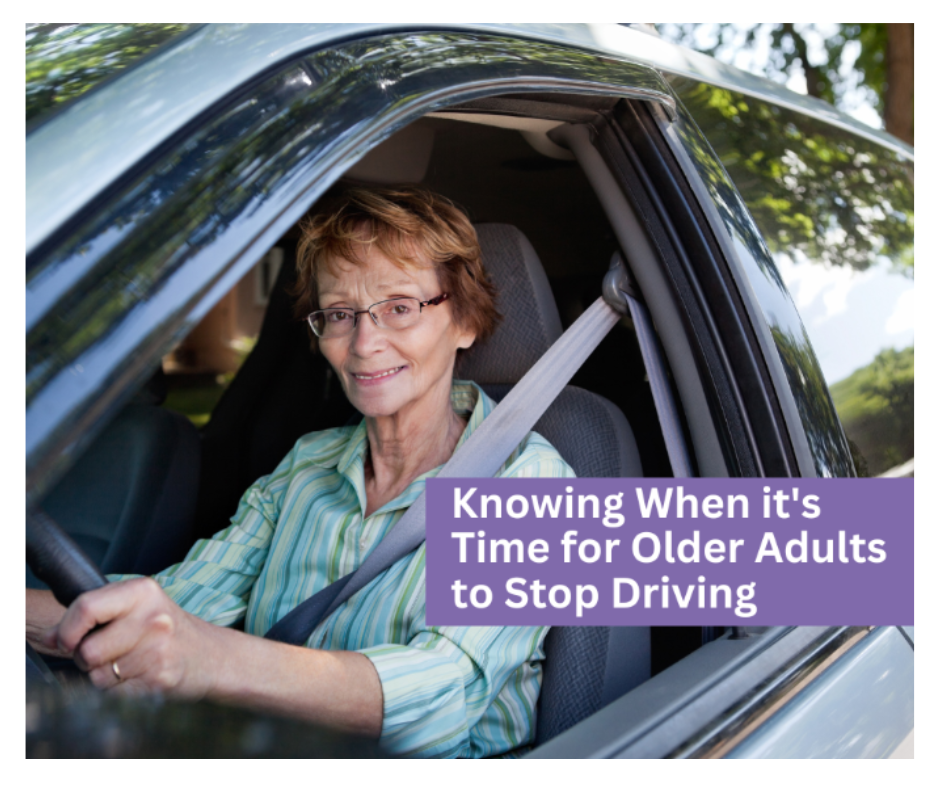As we age, it’s important to keep an eye on our driving skills. Driving is a significant aspect of our independence, but it can become more difficult and dangerous as we age. As we grow older, physical changes and age-related health issues can affect our ability to drive safely. This is why it’s essential to be aware of the warning signs that indicate when older adults should stop driving and how to talk to your older loved one about driving.
When should older adults stop driving?
The age at which older adults should stop driving varies from person to person. However, there are some signs that indicate it may be time to consider limiting or stopping driving altogether:
- Physical health problems: If your loved one has physical health problems that affect their ability to drive safely, it’s time to consider limiting or stopping driving. These health issues include vision and hearing problems, arthritis, and chronic pain.
- Cognitive issues: If your loved one is experiencing cognitive issues such as dementia or Alzheimer’s disease, it may be time to stop driving. These conditions can impair their ability to make quick decisions and react to changes on the road.
- Medication side effects: Some medications can cause drowsiness, dizziness, or other side effects that can affect driving ability. If your loved one is taking medication that affects their ability to drive, it’s important to talk to their doctor about alternative treatments.
- Close calls or accidents: If your loved one has had several close calls or accidents recently, it’s time to consider limiting or stopping driving altogether.
- Difficulty with driving tasks: If your loved one is having trouble with driving tasks such as changing lanes, merging, or parking, it may be time to limit or stop driving.
What signs should you look out for?
If you’re concerned about your older loved one’s driving ability, here are some warning signs to look out for:
- Getting lost more easily, even in familiar areas.
- Struggling to back up or turn the car around.
- Having trouble seeing or keeping track of traffic signals, road signs, or pavement markings.
- Mixing up the gas and brake pedals or pressing them both at the same time.
- Responding slowly to unexpected situations.
- Having road rage or causing other drivers to honk.
- Friends or family members refuse to ride with them.
How to talk to your older loved one about driving?
Talking to your older loved one about driving can be a difficult conversation. Here are some tips on how to approach the topic:
- Be respectful and empathetic: Your loved one may feel defensive about their driving abilities. It’s essential to approach the topic with respect and empathy.
- Plan ahead: Schedule a time to talk when you and your loved one are both calm and relaxed. Try to avoid discussing driving ability after an accident or close call.
- Be specific: Use specific examples of driving incidents that have caused concern. Explain why you’re concerned and how their driving affects their safety and the safety of others.
- Offer alternative transportation options: If your loved one agrees that it’s time to limit or stop driving, offer alternative transportation options. This can include public transportation, ride-sharing services, or arranging rides with friends and family members.
- Be supportive: Losing the ability to drive can be a difficult adjustment. Be supportive of your loved one and offer to help them find alternative transportation options.











